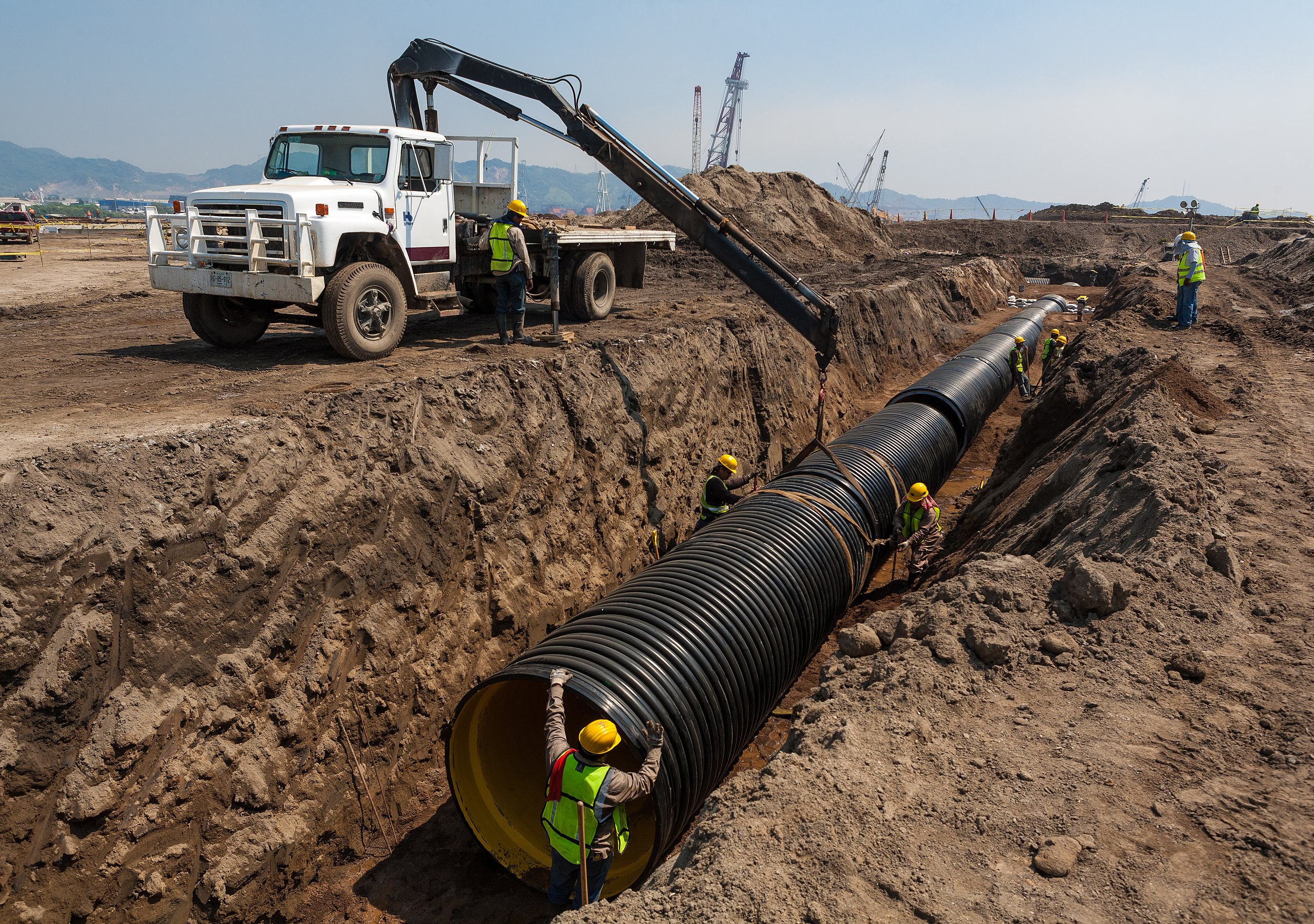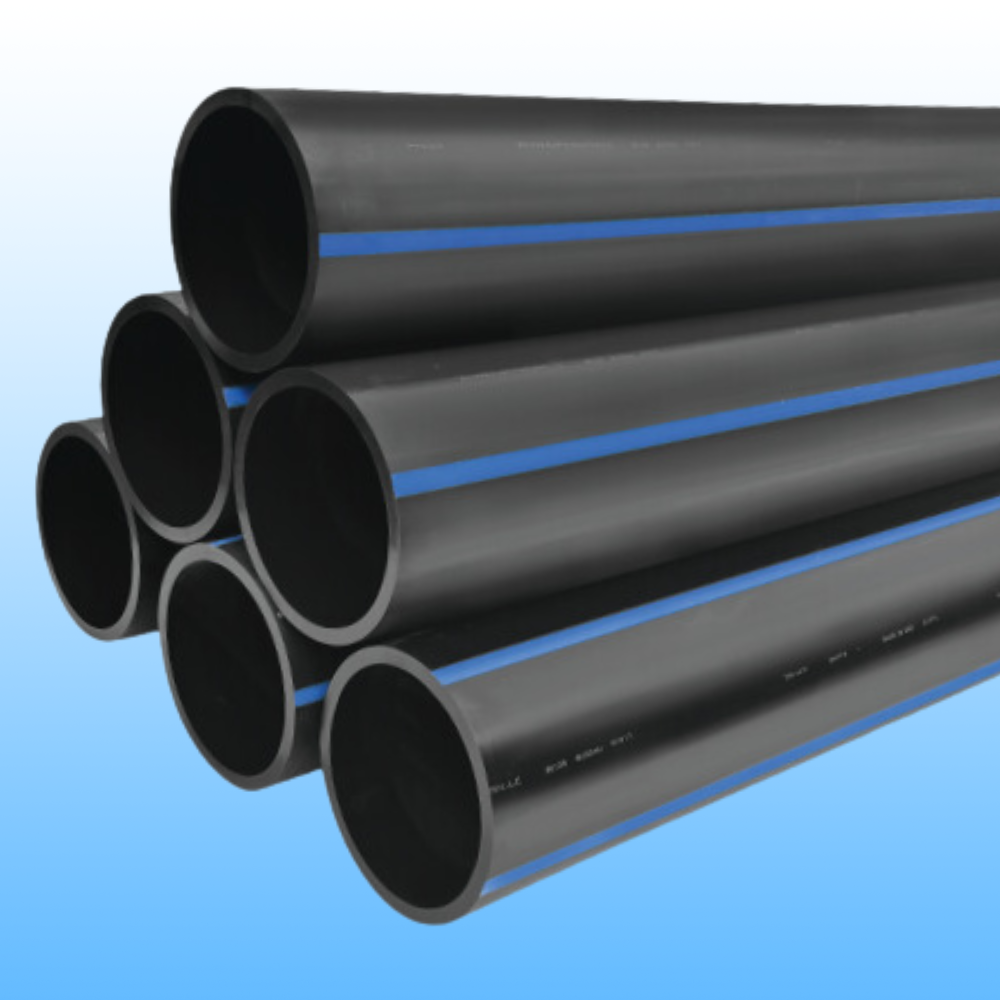Understanding the Trick Advantages of HDPE Pipe for Water and Wastewater Management
The usage of HDPE pipeline in water and wastewater management provides various advantages that warrant factor to consider. Its remarkable longevity and long life-span make it a recommended selection for many projects. Furthermore, the material's resistance to rust and chemical damage boosts its integrity in different environments. Nevertheless, the benefits prolong past simply durability and resistance. Discovering its cost-effectiveness and environmental influence reveals even more engaging factors for its prevalent fostering in contemporary infrastructure
Exceptional Durability and Longevity

HDPE pipeline stands apart for its remarkable toughness and durability, making it a favored selection in water management systems. Built from high-density polyethylene, these pipes can stand up to considerable pressure and stress, guaranteeing trusted efficiency gradually. Their durable nature enables them to sustain severe environmental conditions, consisting of temperature level changes and dirt motions, which can create other materials to fail.
The life-span of HDPE pipelines commonly exceeds 50 years, offering a cost-effective solution for districts and markets alike. Additionally, the material's light-weight residential or commercial properties simplify installation, minimizing labor prices and timeframes. This sturdiness lessens the need for frequent fixings or substitutes, further enhancing its financial charm.
In water management applications, the integrity of HDPE pipelines means less interruptions and improved service continuity, making them important to lasting framework growth. The mix of sturdiness and longevity solidifies HDPE's role as a keystone in reliable water administration options.

Resistance to Deterioration and Chemical Damage
While numerous materials catch rust and chemical damage over time, HDPE pipelines show remarkable resistance, making them excellent for numerous water administration applications. This resilience stems from the molecular structure of high-density polyethylene, which is inherently non-reactive and does not rust like metals or break down from direct exposure to rough chemicals. Consequently, HDPE is extremely efficient in environments with aggressive materials, such as wastewater systems that may include acids, bases, and natural solvents.
Furthermore, HDPE pipelines can endure ecological aspects such as soil acidity and saline conditions, further improving their suitability for diverse applications (American Plastics HDPE Pipe Manufacturing). Their capability to maintain structural integrity over time decreases the threat of leaks and failures, which is critical in making sure the safety and reliability of water circulation and wastewater monitoring systems. The resistance to deterioration and chemical damages considerably contributes to the total performance and long life of HDPE piping remedies.
Cost-Effectiveness and Economic Advantages
When taking into consideration the monetary ramifications of water administration systems, the cost-effectiveness of HDPE pipes comes to be evident. These pipelines provide reduced installation and upkeep expenses contrasted to typical materials like metal or concrete. Their lightweight nature streamlines transportation and installation, resulting in decreased labor expenditures. Additionally, HDPE pipes exhibit a lengthy lifespan, usually going beyond half a century, which converts to less substitutes and lasting cost savings.
Moreover, the resistance of HDPE to corrosion and chemical damages minimizes the requirement for expensive repairs and replacements. The pipes additionally sustain effective water circulation, lowering power costs connected with pumping systems. By minimizing leaks and water loss, HDPE pipelines contribute to significant economic benefits for towns and industries alike. In general, the initial financial investment in HDPE piping can yield considerable financial returns over the life expectancy of the water management system, making it a sensible choice for lasting infrastructure development.
Environmental Sustainability and Minimized Effect

Versatility and Adaptability in Setup
As a result of their unique homes, HDPE pipelines use amazing versatility and flexibility in installment, making them appropriate for a large range of applications. Their lightweight nature enables easier handling and transport, decreasing labor costs and installation time. HDPE pipes can be bent and formed to fit various surfaces and project needs, which is specifically useful in testing settings.
Furthermore, their resistance to deterioration and chemical damage enables installation in diverse settings without the requirement for specialized safety finishings. cipp sewer lining The ability to fuse joints creates a constant, leak-free system, improving the overall integrity and dependability of the setup. HDPE's flexibility likewise fits ground motion, lowering the risk of damages in areas susceptible to moving dirt. On the whole, these features make HDPE pipes not only versatile yet likewise a favored choice for water and wastewater monitoring systems.
Frequently Asked Inquiries
How Does HDPE Pipeline Compare to PVC in Water Monitoring Applications?
HDPE pipe provides superior versatility, resistance to deterioration, and resilience contrasted to PVC. Its lighter weight polybutylene plumbing helps with much easier installation, while its long life expectancy reduces replacement prices, making HDPE a favored selection in water monitoring applications.
What Is the Life-span of HDPE Piping Under Normal Conditions?
Under regular problems, HDPE pipelines can have a lifespan varying from 50 to 100 years. Their longevity and resistance to corrosion add to their lasting performance in various applications, making them a reliable selection for framework.
Are HDPE Pipeline Recyclable After Their Life Span?
Yes, HDPE pipelines are recyclable after their life span. Pipe Manufacturing Midland TX. They can be processed and repurposed into new products, substantially lowering environmental impact and advertising sustainability within the market, making them an environmentally friendly selection for piping options
What Is the Installation Process for HDPE Water Lines?
The installation procedure for HDPE pipelines includes site preparation, trenching, pipe blend or mechanical signing up with, backfilling, and stress testing. Proper techniques ensure a resilient and effective system for carrying water and wastewater efficiently.
Can HDPE Water Lines Be Used for Both Potable and Non-Potable Water Solutions?
Yes, HDPE pipelines can be used for both potable and non-potable water supply. Their convenience, resilience, and resistance to rust make them ideal for different applications, making sure secure and reliable transportation of water in various contexts.